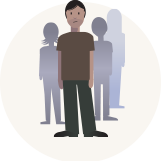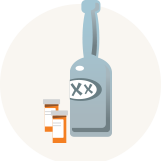Gambling involves risking money or something of value on activities with uncertain outcomes. People gamble in
many ways — from playing slot machines and purchasing lottery tickets to placing bets on sports. The aim is
usually to win more than what was wagered. While gambling can be a form of entertainment, it always carries a
level of risk because the results are never guaranteed. For some, what starts as fun can lead to harmful
consequences when control is lost.
Why Do People Gamble?
There are many reasons people choose to gamble. Some are drawn to the thrill and excitement, while others see it
as a way to possibly improve their finances. Gambling can be a fun group activity or a way to pass the time. Many
turn to gambling to cope with stress, boredom, or emotional struggles. Games that involve skill, like poker or
sports betting, may appeal to those who enjoy competition. Advertising, promotions, and easy access can also
influence people to start or continue gambling. In some cases, gambling becomes a habit or even a form of
addiction.
When Gambling Becomes a Problem
Gambling turns into a problem when a person loses control over their behavior. This often includes spending too
much time or money on gambling, chasing losses, or neglecting other responsibilities. What once felt like
entertainment can become a source of anxiety, stress, and conflict. Relationships with family and friends may
suffer, and feelings of guilt or hopelessness can develop. When gambling causes harm instead of enjoyment, it
becomes a serious concern.
The Impact of Problem Gambling
Problem gambling can deeply affect both the individual and those around them. It often leads to financial trouble
— from mounting debts to bankruptcy. Trust may be broken, straining relationships with loved ones. Emotional
well-being can decline, resulting in depression, anxiety, and isolation. In more severe cases, it can interfere
with work, education, or daily life responsibilities, and may even lead to legal issues. Overall, it can
significantly lower a person’s quality of life and mental health.
Gambling Disorder is officially classified as a behavioral addiction in the Diagnostic and Statistical Manual of
Mental Disorders, Fifth Edition (DSM-5) by the American Psychiatric Association. This recognition represents a
major shift in how gambling-related issues are viewed—aligning them with substance-related addictions due to their
similar symptoms, brain activity patterns, and treatment approaches.
How It’s Classified
- Category: Substance-Related and Addictive Disorders
- Diagnosis Name: Gambling Disorder
- ICD-10 Code:0
- (Formerly known as Pathological Gambling and previously listed under Impulse-Control Disorders)
This reclassification reflects the growing understanding that gambling can be as addictive and harmful as drugs
or alcohol.
DSM-5 Diagnostic Criteria for Gambling Disorder
To be diagnosed with Gambling Disorder, an individual must meet at least 4 of the following 9
criteria within a 12-month period, leading to significant distress or life disruption:
- Needs to gamble with increasing amounts of money to feel the same thrill.
- Becomes restless or irritable when attempting to reduce or stop gambling.
- Has repeatedly tried and failed to control or stop gambling.
- Is preoccupied with gambling—thinking about past experiences, planning future bets, or finding money to
gamble.
- Gambles to escape negative emotions such as stress, anxiety, or depression.
- Tries to win back losses by continuing to gamble (“chasing” losses).
- Lies to hide the extent of gambling involvement.
- Has damaged or lost relationships, jobs, or educational opportunities due to gambling.
- Depends on others financially to deal with gambling-related crises.
Note: These symptoms must not be better explained by a manic episode. The diagnosis emphasizes
repeated patterns of behavior rather than isolated incidents. Gambling Disorder shares key traits with substance
use disorders, including tolerance, withdrawal-like symptoms, and continued behavior despite serious consequences.
Raising Awareness with playchoice.org
At playchoice.org, in partnership with the New York Council on Problem
Gambling, our mission is to raise awareness about gambling addiction and its impact. We strive to open
up meaningful conversations among individuals, families, professionals, and communities.
While we do not take a stance on gambling itself, we are fully committed to prevention, education, and
support. Whether you’re seeking help for yourself or someone you care about, or simply want to learn
more, our goal is to equip you with the tools and information needed to take the first step toward understanding
and recovery.
Want to get informed and take action?
Explore our resources to better understand problem gambling and discover pathways to support, healing, and hope.





